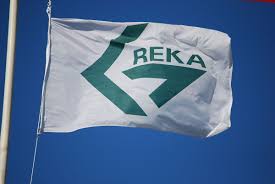
A record $12.5 million fine for nearly 1,500 violations has been leveled against an oil company in California.
Greka Oil and Gas, a Santa Maria-based company with a long history of safety violations and regulatory lapses was fined in part for lying in more than 350 reports. It also failed to conduct regular pressure testing at dozens of wells and according to the state’s Department of Conservation, did not maintain operating pressure gauges.
All of the alleged violations occurred at an oil field in Orange County, according to a report by the Associated Press.

Officials with Greka have yet to respond publicly but the state is certainly speaking out.
“The magnitude of this penalty reflects the company’s violations and poor practices, and the potential harm it could cause to surrounding communities, the environment, and groundwater,” said Ken Harris, supervisor of the Division of Oil, Gas and Geothermal Resources.
The massive fines followed years of public criticism of the state for not being aggressive in pursuit of forcing Greka to improve safety conditions.
The previous California record against an energy company was a $257,000 fine against Bennett Petroleum in 2015. The $12.5 million fine against Greka surpassed the Bennett company fine nearly 50 times.
It also got the attention of environmentalists.
“The fine against Greka is a step in the right direction, but their business model seems to be just make money no matter the damage,” said Keith Nakatani of the environmental group Clean Water Action. “The punchline is they shouldn’t be in business.”
The state also ordered the company to stop injecting water into its Richfield oil operation northeast of Anaheim until it complies with state orders. It is also required to get a $39 million bond that would be used to cover cleanup costs if the company goes bankrupt.
Since 2007, more than two dozen spills have occurred at Greka facilities in Santa Barbara County, Harris wrote in a letter released through a California Public Records Act request to Clean Water Action.
Equipment failed, pipelines ruptured, storage tanks leaked and pump jacks and well heads were found to be faulty, Harris wrote.
“Greka frequently addresses the immediate spill in order to maintain the minimum compliance level required by state law and avoid civil penalties, but does little to improve the overall safety of its facilities,” Harris wrote, noting the company had two spills in the six months since he received the letter from lawmakers.





